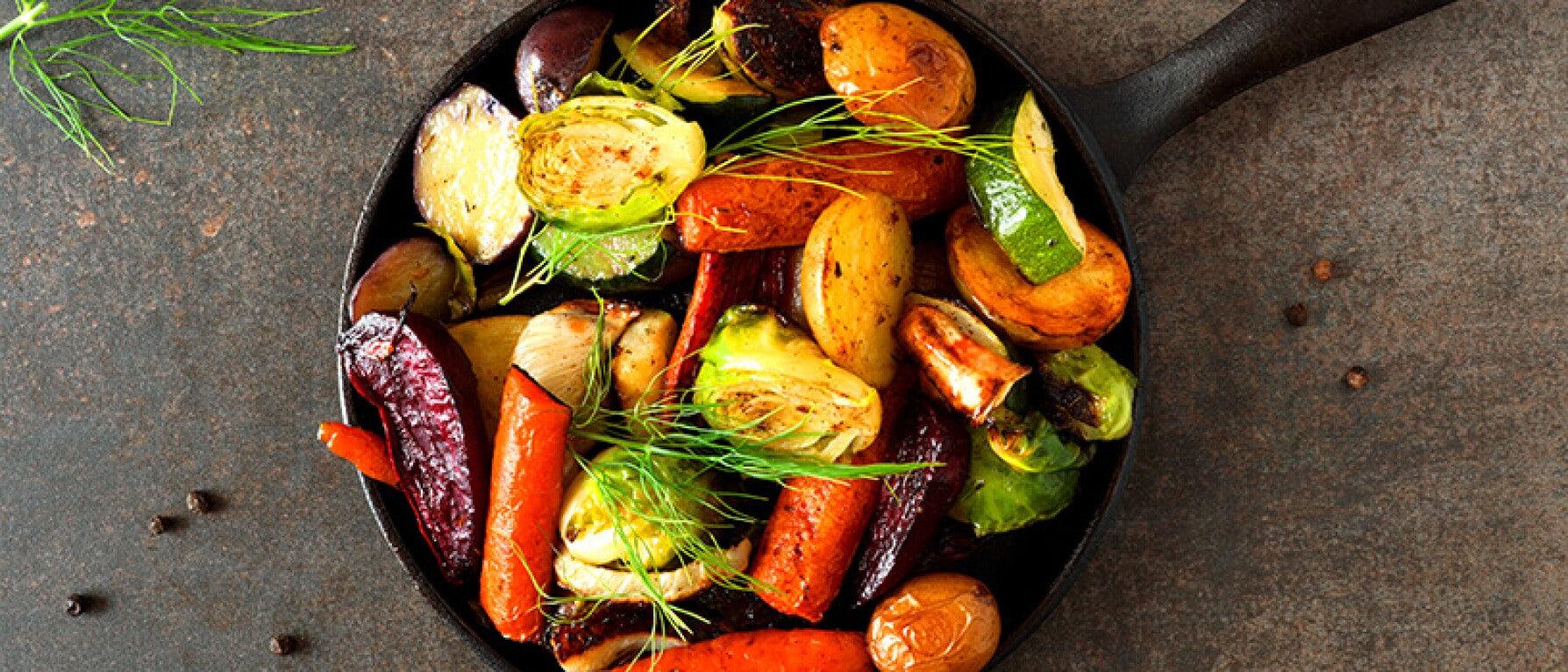When you think of Thanksgiving, the first thing that tends to come to mind is the meal. While this day serves as an annual reminder of the joys of eating good food together, many people experience the annual side effects of overeating: mainly an increase in lethargy and a decrease in overall vitality.
However, by incorporating basic Ayurvedic principles into your Thanksgiving holiday, you can enjoy all the traditions of the day while maintaining, or even enhancing, your energy and well-being.
*Editor’s Note: The information in this article is intended for your educational use only; does not necessarily reflect the opinions of the Chopra Center's Mind-Body Medical Group; and is not a substitute for professional medical advice, diagnosis, or treatment. Always seek the advice of your physician or other qualified health providers with any questions you may have regarding a medical condition and before undertaking any diet, supplement, fitness, or other health program.
Learn how to use the ancient wisdom of Ayurveda to keep every member of your family happy and healthy through the holiday season and beyond with our introductory online course, Discovering Ayurveda. Learn More.
However, by incorporating basic Ayurvedic principles into your Thanksgiving holiday, you can enjoy all the traditions of the day while maintaining, or even enhancing, your energy and well-being.
1. Eat to Promote Digestion
Ayurveda identifies the late fall season as a time of Vata. Vata is the dosha governed by the elements of air and space. Focus on consuming foods that balance Vata by bringing heaviness and warmth to the body.- Skip the green salad and crudités. Raw vegetables take a lot of energy to digest, a task that the late fall digestive system is not set up to handle.
- Focus on seasonal foods—think squash, potatoes, or Brussels sprouts. These foods are nature’s harvest during this time of year, and are excellent for balancing Vata. Cook foods with small amounts of butter, ghee, or coconut oil for added Vata-balancing qualities.
- Skip the cold beverages. Cold beverages slow digestion, essentially “dousing” your digestive fire. Instead, focus on sipping room temperature or lukewarm water throughout the day. This will keep your digestive system well hydrated, ensuring optimal digestion.
- Make yourself some tea. Warm herbal tea—especially ginger tea—helps stimulate the digestive process.
2. Feast in the Afternoon
In Ayurveda, just as the months of the year cycle through different doshas, or elemental qualities, so do the hours in the day. The best time of day to eat a large meal is during the high-Pitta hours of 12 p.m. to 2 p.m. During this time, the fire-governing Pitta dosha is strong, meaning the sun is high in the sky and your digestive fire is optimal.- Eat a small breakfast in the morning, the large Thanksgiving meal between 12 p.m. and 2 p.m., and a small dinner or snack before 8 p.m. Since it’s a holiday, you may want to treat yourself by saving your dessert to eat as a small dinner.
- Incorporate a small fast, at least 12 hours, before eating anything the following day (so, if you finish eating by 8 p.m., make sure to fast until at least 8 a.m. the following morning). This gives your system a chance to properly rest and digest. By incorporating a fast after Thanksgiving day, you will help prevent the accumulation of ama, or toxic products of digestion, within the body.
3. Nourish All the Senses
Both food and your surroundings can nourish you or they can deplete you. Food offers only one “flavor” of nourishment—it satisfies the senses of taste and smell. However, you derive nourishment and well-being from touch, sight, and sound as well. What nourishes the soul also nourishes the body. Especially on this day of replenishment, bring awareness to all of your senses.-
Pay attention to touch.
The skin is the largest organ in the body, and is linked to emotional well-being and vitality. Start your day with self-massage, or abyhanga, by rubbing almond or coconut oil into your skin before your morning shower. Later in the day, company in the form of friends or loved ones offers a great opportunity for hugs or affectionate embraces. Even spending extra time with pets can provide a much-needed sense of connection. -
Enjoy nature.
Venture outdoors in the late afternoon or early evening, after you have finished your meal. Your time in nature need not be extravagant to be meaningful. A walk around the block serves as an opportunity to notice the smell of the leaves, the sound of the breeze in the trees, or the feel of the sun on your face. By incorporating time for subtle—rather than hectic—stimulation, you will be reminded of the simple awe that is around you every day. This sense of well-being ultimately puts your body into a rest-and-digest state, which is healthy both for your nervous system and metabolism.
*Editor’s Note: The information in this article is intended for your educational use only; does not necessarily reflect the opinions of the Chopra Center's Mind-Body Medical Group; and is not a substitute for professional medical advice, diagnosis, or treatment. Always seek the advice of your physician or other qualified health providers with any questions you may have regarding a medical condition and before undertaking any diet, supplement, fitness, or other health program.
Learn how to use the ancient wisdom of Ayurveda to keep every member of your family happy and healthy through the holiday season and beyond with our introductory online course, Discovering Ayurveda. Learn More.

